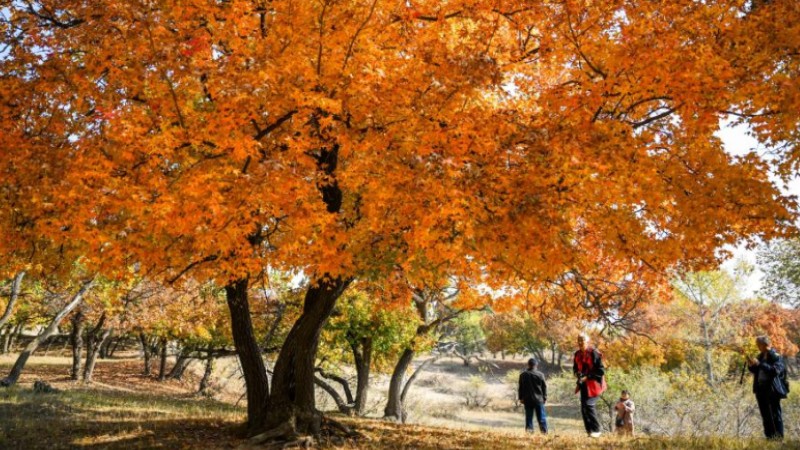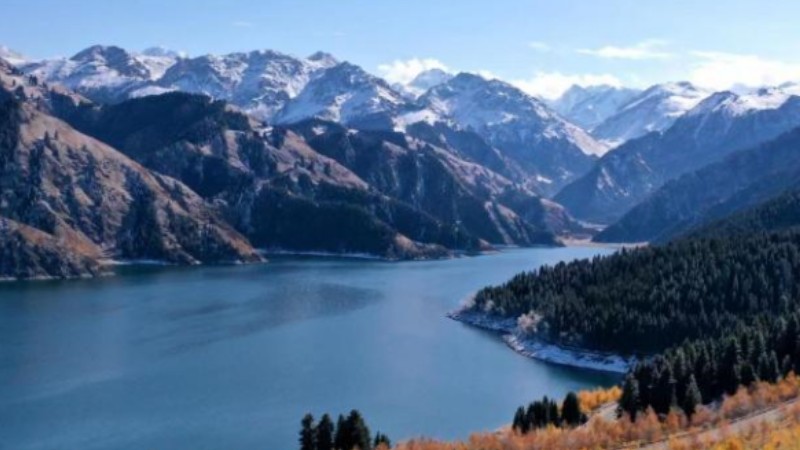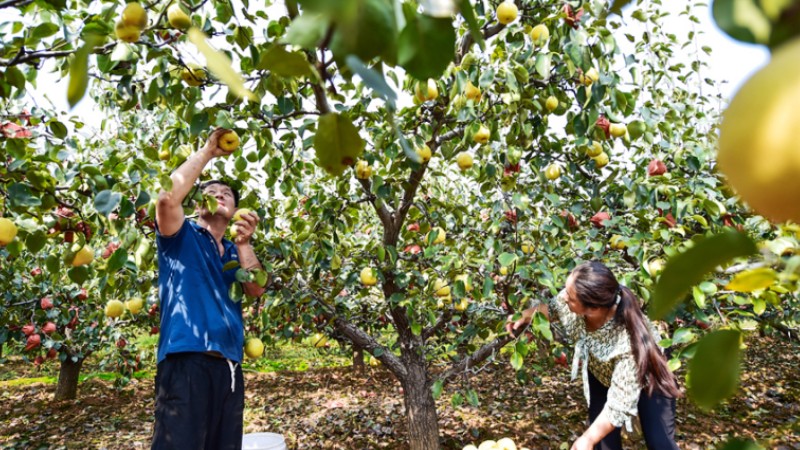Xi meets Vucic, hailing ‘ironclad friendship’ that yields fruitful BRI results
Chinese President Xi Jinping met with Serbian President Aleksandar Vucic on Tuesday in Beijing, calling Serbia an "ironclad friend" of China, saying that bilateral relations have withstood changes in the international landscape over recent years and are a paragon of friendly relations between China and European countries.
In the face of significant changes in the world that have not been seen in a century, both sides should view the China-Serbia relationship from a strategic height and long-term perspective, firmly support each other's core interests and major concerns, and resolutely support each other's chosen development path, Xi told Vucic.
China firmly supports Serbia in safeguarding its national sovereignty and territorial integrity and is willing to continue to strengthen strategic alignment with Serbia, turning the traditional friendship between China and Serbia into more pragmatic cooperation results, the Chinese President said.
Both sides should comprehensively strengthen cooperation in culture, education, tourism, sports and other fields, letting the ironclad friendship between China and Serbia shine brightly in the new era, Xi said.
Vucic said that he is leading a large government delegation to attend the third Belt and Road Forum (BRF) for International Cooperation in China, reflecting Serbia's respect, friendship and importance toward China.
China-Serbia relations have withstood various tests. Serbia firmly adheres to a friendly policy toward China and stands with China on all issues concerning China, firmly adhering to the one-China principle, Vucic noted. "We are proud of the strong friendship between Serbia and China. China has always respected and treated Serbia equally, and provided valuable support when Serbia faced difficulties."
"China and Serbia share a high level of political mutual trust, maintaining consistency on major strategic issues and understanding each other's core interests and concerns such as on China's Taiwan question and Serbia's Kosovo issue," Liu Zuokui, deputy director of the Institute of European Studies under the Chinese Academy of Social Sciences, told the Global Times on Tuesday.
Both sides have their bottom lines on these topics and fully understand the basic policy positions of each other, that is, firmly opposing separatism and firmly opposing divisive forces causing trouble, Liu said.
In opposing hegemony and power politics, China and Serbia also have a very high degree of consensus, he noted.
It is the third time for President Vucic to attend the BRF, after attending the previous editions held in 2017 and 2019, according to Jelena Begovic, Minister of Science, Technological Development and Innovation of Serbia.
BRI cooperation has become a catalyst for technological development in Serbia. For example, the first phase of the Hungary-Serbia Railway, an important project under the BRI, has transported nearly three million passengers between Belgrade and Novi Sad, Serbia's two largest cities, in the first year of operation. The construction of the second phase of the project is proceeding according to schedule and is expected to be completed by the end of 2024.
After the meeting between Xi and Vucic, the two heads of state jointly witnessed the signing of several bilateral cooperation documents, including the mid-term action plan for the BRI, a memorandum of understanding on industry and investment cooperation, and a free trade agreement (FTA).
This is the first FTA China has signed with a Central or Eastern European country, and it is the 22nd free trade agreement China has signed. Serbia has become China's 29th free trade partner.
Also on Tuesday, China's CRRC Changchun Railway Vehicles Co Ltd signed a high-speed train procurement deal with the Serbian transportation authorities, in which Chinese high-speed electric multiple units (EMUs) with a speed reaching 200 kilometers per hour will be exported to Europe for the first time.
Serbia has been facing pressure from the West over its cooperation with China. Philip Kosnett, former US Ambassador to Kosovo, was quoted as saying in a report by Euractiv on Monday that efforts to coax Serbia into the arms of the West instead of China and Russia have not yielded results, and it is time to wake up to a new approach.
Serbia has been seeking a balanced diplomacy with major countries including the US, Russia and China, but since the Ukraine crisis, Western forces have been "cleaning off the influence of external forces" including that of Russia and China in the Balkans, some experts said.
However, Serbia, among European countries, has set a good example not only in Europe but also globally, showing that as long as the two sides have sufficient political mutual trust and the desire for economic cooperation, fruitful results can be achieved, they noted.
Photos
Related Stories
- Kenyan president hails mutually beneficial ties
- Cypriot scholar: BRI a powerful driver of international exchange and cooperation
- Xi stresses cooperation, development on new journey toward another "golden decade" for BRI
- Xi: Joint building of Belt and Road full of vitality
- Key takeaways from Xi's meetings with foreign leaders attending 3rd BRF
Copyright © 2023 People's Daily Online. All Rights Reserved.









